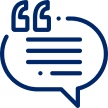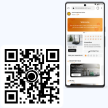The Slowness of Landlines
Imagine a scenario where a guest requires assistance from the front desk while away from the room or busy in a work meeting, yet the only available communication avenue is a landline. The process becomes a labyrinth of obstacles – busy lines, transfers between departments, and frustrating delays. The inefficiencies of landline communication not only contribute to a less-than-optimal guest experience but also fall short of meeting the expectations of a generation accustomed to immediacy.
According to a recent study by Hospitality Technology, 75% of travellers consider quick responsiveness a critical factor in their overall satisfaction with a hotel stay. In an era where time is of the essence, the sluggishness of landline communication becomes a roadblock to providing quick and efficient service.
Beyond the front desk, landlines also limit the scope of communication between guests and other hotel staff. Requests for services, information, or reservations are hindered by the barriers presented by traditional communication methods. This slow-paced interaction model no longer aligns with the dynamic expectations of modern travellers.
Paperwork Woes
In an age defined by digital transformation, the persistence of paper-based communication within hotels introduces its own set of challenges. Messages written on physical paper can be easily misplaced (wi-fi credentials, anyone?), leading to delayed or missed communication between staff members. Manual errors in transcription (“I asked for less spicy food” or “3 pool towels, and not 2”) further compound the problem, introducing a margin for miscommunication that can adversely affect the guest experience.
The time-consuming nature of handling physical documents not only impedes the efficiency of internal hotel operations but also reflects poorly on the perceived professionalism of the establishment. Guests, accustomed to the conveniences of a digital era, may find themselves questioning why a seemingly simple request involves a labyrinth of paperwork.
Statistics reveal that 87% of guests value a seamless and efficient check-in and check-out process. The persistence of paperwork in traditional communication methods not only hinders these processes but can also lead to frustration among guests expecting a more streamlined experience.
Unleashing the Power of AI on WhatsApp
The limitations posed by traditional communication methods necessitate a paradigm shift, and AI-powered conversational platforms on WhatsApp are at the forefront of this transformation. These platforms leverage the immediacy and ubiquity of messaging apps to provide guests with instant responses to their queries or requests.
One of the key advantages of AI on WhatsApp is the platform's ability to facilitate real-time communication. According to a survey by Travelport Digital , 57% of travellers prefer using messaging apps for communication with hotels. Whether guests are seeking additional amenities, information about local attractions, or making reservations, they can enjoy instant access to all of this via a new, modern digital concierge available 24x7.
The days of waiting on hold or being passed from one department to another are replaced with a streamlined and efficient communication flow that puts the guest experience at the forefront. A recent report by Deloitte indicates that 62% of guests appreciate personalised services. AI on WhatsApp not only caters to this preference but exceeds it by providing instant, personalised responses that elevate the overall guest experience.
Unlocking Two-Way Conversations to Increase Overall Revenue
What sets AI on WhatsApp apart is its ability to unlock two-way conversations, transforming the communication dynamic between hotels and guests. This feature empowers hotels to reach out to their guests through personalised and targeted campaigns, a game-changer for meeting the goals of both business and leisure travellers while helping the hotels improve their TRevPAR.
For business travellers, hotels can send tailored messages about cab pickups/drop offs, business services, or local networking events. Leveraging AI-driven insights, hotels can understand the specific needs of their business guests and curate experiences that cater to their professional objectives.
On the leisure front, AI on WhatsApp allows hotels to craft personalised recommendations for onsite services such as spa, local attractions, dining options, or exclusive promotions. By understanding the preferences of leisure travellers, hotels can enhance their stay by providing customised suggestions that align with their interests and preferences.
This two-way communication not only enriches the guest experience but also opens avenues for hotels to optimise their services based on real-time feedback and guest preferences. It's a shift from a one-size-fits-all approach to an individualised and responsive model that aligns with the unique goals of each guest.
Instant Gratification
Modern guests seek instant gratification in their interactions with hotels. They expect their needs and queries to be addressed promptly, enhancing their overall experience. AI on WhatsApp is designed to deliver precisely that – instant gratification. The platform allows guests to communicate with the hotel staff in real-time, ensuring that requests are acknowledged and addressed without unnecessary delays.
Whether a guest needs a quick clarification, wants to request a service, or is looking for information about the hotel's facilities, the immediacy of AI-driven communication on WhatsApp contributes to a positive and efficient guest experience.
This instant access to information and services not only meets but exceeds the expectations of guests who are accustomed to the immediacy of digital communication in other aspects of their lives. According to a report by Oracle Hospitality, 80% of guests believe that technology has improved their hotel experience. AI on WhatsApp plays a pivotal role in delivering this improvement by providing instant, tech-driven communication that aligns with modern expectations.
Breaking Down Communication Barriers
Traditional communication methods can inadvertently create barriers, particularly for international guests. Language differences, misunderstandings, and delays in relaying information can hinder effective communication, leading to potential frustration for guests and staff alike. AI on WhatsApp, equipped with advanced language processing capabilities, breaks down these barriers.
The platform can seamlessly translate messages in real-time, ensuring that language differences do not impede communication. This feature is particularly valuable in the hospitality industry, where guests from around the world converge. By facilitating clear and concise communication, AI on WhatsApp ensures that all guests, regardless of their linguistic background, can enjoy a hassle-free and inclusive interaction with the hotel staff.
According to a survey conducted by Booking.com, 67% of travellers prefer real-time translation technology to overcome language barriers during their stays. AI on WhatsApp not only meets this preference but exceeds it by providing an instantaneous and accurate translation feature, enhancing the communication experience for guests from diverse linguistic backgrounds.
Enhancing Guest-Centric Services
The shift to AI-driven platforms not only addresses the limitations of traditional communication methods but also aligns seamlessly with the growing demand for guest-centric services. By providing instant, personalised responses, hotels can elevate their service quality to new heights.
Guests today expect a level of personalization in their interactions with hotels. AI-powered conversational platforms not only streamline communication but also allow hotels to anticipate and fulfil guest needs proactively. According to a study by Accenture, 58% of consumers are willing to switch brands for a more personalised experience.
According to a report by Qualtrics, 60% of customers are willing to pay more for a better experience. AI on WhatsApp enhances the overall guest experience by providing a level of service that goes beyond expectations, creating a positive perception of the hotel and increasing the likelihood of repeat business.
Empowering Hotel Leadership with Data
A pivotal advantage of AI on WhatsApp is its ability to generate valuable data that empowers hotel leadership to monitor key guest satisfaction and operational metrics. Unlike traditional methods, the digital nature of AI-driven communication allows for the seamless collection and analysis of data.
Hotel leadership can leverage clear dashboards and comprehensive reports to gain insights into guest preferences, satisfaction levels, and operational efficiency. This data-driven approach enables hotels to make informed decisions, tailor services to meet specific guest needs, and optimise operational processes.
The benefits extend to understanding the success of personalised campaigns, measuring guest engagement, and identifying areas for improvement. With real-time data at their fingertips, hotel leaders can adapt strategies swiftly, ensuring that the guest experience remains at the forefront of their operations.
The Future of Hotel Communication
As we gaze into the future of hotel communication, it becomes evident that embracing technology is not just an option but a necessity. The limitations of traditional methods are increasingly glaring, and the industry must evolve to meet the expectations of modern travellers. AI-powered conversational platforms on WhatsApp represent the future – a future where guest satisfaction is enhanced through efficient, personalised, and instantaneous communication.
In the era of digital transformation, hotels leveraging AI on WhatsApp are not just keeping up; they are setting new standards for guest interactions. The technology paves the way for a more connected and guest-centric hospitality experience. According to a report by Gartner, 89% of companies expect to compete primarily based on customer experience. It's time for the industry to break free from the constraints of the past and embrace the limitless possibilities that AI-powered communication brings to the forefront.
Conclusion
The transition from traditional communication methods to AI-powered conversational platforms on WhatsApp is not just a technological upgrade; it's a strategic move to meet the changing needs and expectations of guests. The limitations of landlines and paperwork are being replaced by the efficiency, speed, and personalization offered by AI-driven communication.
The future of hotel communication is dynamic and guest-centric, driven by technology that enhances rather than hinders. As hotels adapt to this paradigm shift, they position themselves not only as providers of accommodation but as facilitators of memorable experiences. The journey from constraints to liberation is underway, and hotels embracing AI on WhatsApp are at the forefront of this transformative wave. It's not just about breaking free from the limitations; it's about embracing a future where guest satisfaction is truly at the heart of every interaction.

























